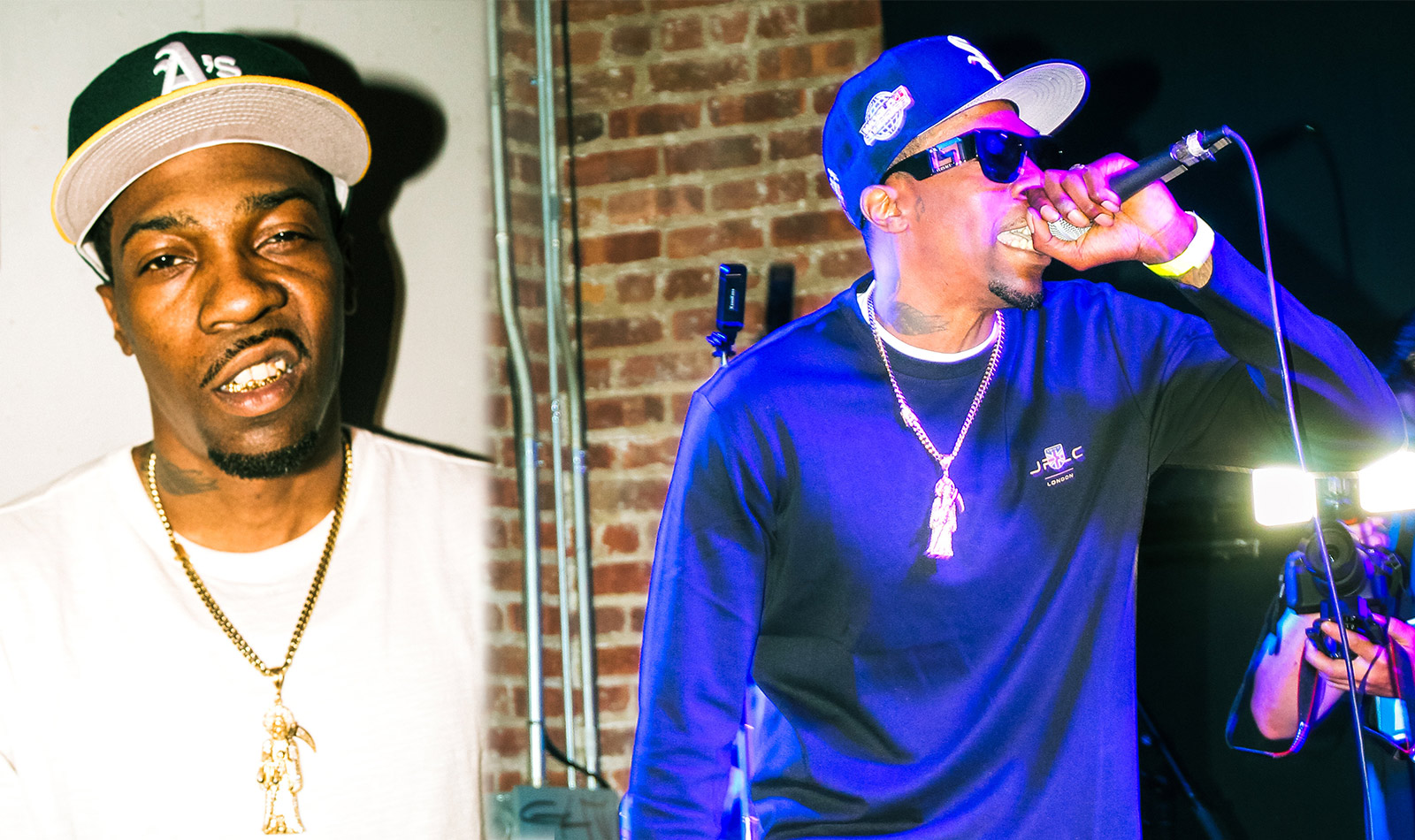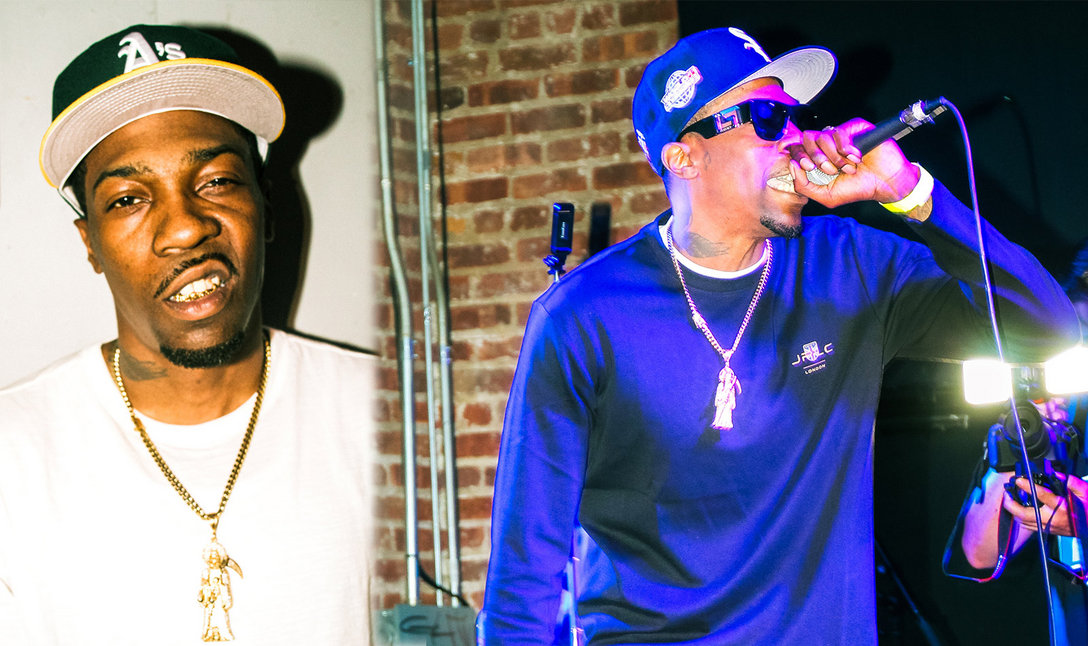Eddie Kaine On the Art of Staying Focused
By
·
August 20, 2025

Hailing from Brooklyn, New York Eddie Kaine—aka Kaino—serves up a raw, nostalgic hip-hop sound. When he was younger, he developed diverse musical tastes by exploring his parents’ CD collection. By the time he was 16, he was pressing up CDs of his own music. Early standout Wonderful World of Kaino offers an intimate look into his life, he documents emotional hardships, like weathering his parents’ divorce. The Wavy da Ghawd collab Twelve 24 is another highlight. The title hints at the project’s origin: Kaine and Wavy were both born on December 24th, a fact that planted the seed for this project. The album finds Kaino at his best; he rips the mic on “Not a Game,” broadcasting his readiness to face any challenges, and on “Rare Form,” he drops a hardcore flow over melodic production. He’s also worked with Rim from Brownsville, and rising producer Big Ghost Ltd on 2021’s A Tree Grows in Brooklyn and its 2024 follow-up Last Exit to Crooklyn. On the latter’s “Reflection,” Kaine discusses his ambition and motivation for success, remaining focused on his goals despite an array of obstacles. His style throughout is smooth and charismatic boom-bap, with the slightest edge
Kane has spent the last six years honing his craft. His storytelling paints vivid pictures of life in the city, conveying both positive and negative experiences with remarkable clarity and sophistication. It also bears evidence of healing; through all of the ups and downs of life, he still approaches music with a refreshing, relatable perspective. His music delivers the kind of classic boom-bap that captures the vibe of summer afternoons spent on a brownstone stoop with friends. We caught up with him to discuss his early influences and how he keeps focus in today’s industry.
Tell us about your upbringing. How did your passion for music develop?
My upbringing was cool. I grew up in a house where music was being played through every room—I had no choice but to adapt. My dad was a DJ, and my mom was a lead singer in the choir. My older brother was going from rap to basketball. Being around music daily [it was like] the music chose me. Eventually, I knew it was something I wanted to try on my own. I would skim through my parents’ CD books, and I listened to different music. I knew what I wanted to do with my life, whether I got successful because of it or not.
Which artists stood out to you while going through your family CD books?
As a kid, I can’t lie, the artwork is what captured me first. So just going by artwork alone, I was intrigued by Capone-N-Noreaga’s The War Report, the Madd Rapper Tell ‘Em Why You Mad, Snoop Doggystyle, Fugees The Score… The list honestly can go on and on. These albums are just the tip of the iceberg—I haven’t even gotten to the soul albums: Ohio Players, Bootsy Collins… I was influenced by it all. And I can’t start this out without saying Bone Thugs-N-Harmony. We had The Source Awards from 1995 on VHS, and I remember rewinding their performance again and again. I was hypnotized by the fast flow and the fros. [Laughs]. Growing older, I started learning what regional vibes were, and noticing different sounds for different areas. Listening to Biggie and Jay was what I knew as our music. Then I would listen to and explore other areas with my headphones—whether I went to Cleveland with Bone, or Long Beach with Snoop, or to N.O. with No Limit or Cash Money. We had a CD in our house—a single cd—with [Master P’s] “Make ‘Em Say Uhhhh” on one side and “Weed and Hennessy” on the other. My little bad self wrote verses to both beats. I grew up to be a fan of Cash Money because my older homies in my hood put me on to BG’s Choppa City in the Ghetto. We were listening to those records before I ever even saw any Cash Money videos. As soon as I saw them on my TV screen, I was intrigued.
And how did growing up in Brooklyn influence your work?
My music was always a representation of me and my upbringing. Coming up rapping around the neighborhood, you kind of just put words together, once you expand and grow in your range in music, you start to learn what your story is what separates you from everyone else. I think my niche is just telling people about my life: A kid who was born and raised in Brooklyn, New York—and I can count on my fingers how many times I left. Brooklyn life is basically all I know, so I am using it to my advantage and acting as my listeners’ tour guide.
You and Rim have great chemistry as a duo. How did you meet?
We met in 2018. People knew I had been grinding for years. And mutual friends would tell us that we should lay some music down together. People told him we should link and do some work; they told me the same thing. Eventually, we linked up and gave the people some good music. It was timing—we had never met before, we just had mutual people who hung together for years.
As you started pursuing music, what challenges did you face?
I debuted my first CD at 16—I burned my own CDs and sold them on the corner. So I had to overcome being let down, ignored, betrayed, lied to, had to deal with failed labels, broken promises. The list is long for the obstacles. Me and my wife have a thing where sometimes we must weigh the pros and cons, because I overcame more obstacles than anything in this game. It’s always obstacles to be faced if you want to progress in this business.
What’s the biggest challenge of being an artist right now?
Staying consistent as an independent artist. When you have to fund every movement you make in this game with little return, it’s extremely easy to want to give up. I write, so whether I record or not, I will still have written material because it’s a hobby for me. But continuing to stay focused when you have bills and other personal things going on in life is the main challenge. I swear, sometimes my support system are the only ones who keep me going. I feel complete when someone tells me a song motivates them, or made them see a bigger picture, or it changed their mood or brightened up their day. When I feel discouraged or overwhelmed by the game’s challenges, that kind of stuff helps me stay focused.
And what about the challenge of balancing family and music?
I have had times that tested myself and my love for this game. And I sacrificed important times—holidays, birthdays, gatherings—to do shows, tours and other appearances. And what I learned is that missing a family birthday for a show isn’t something you get rewarded for. You get no pats on the back for putting your career over your family. So just make wise decisions. At this time in my life my wise decision is to put my family first. Music is always my passion, so I compromise with myself.
Tell us about how you develop your concepts. What is the role of art in projects?
This goes back to when I was child, skimming through those CD books. I did not know what to expect—I would listen to Muddy Waters by Redman because the cover pulled me in. As a kid, the cover of DMX’s Flesh of My Flesh, Blood of My Blood really shocked me. Those are the feelings I try to bring with my artwork—which I sometimes feel is a forgotten art! Back then, your cover image was everything man. It was a statement, seeing Half A Mil’s Million artwork all over my neighborhood and knowing he lived down the block. Trivial things like that made me take pride in how I market myself. I aim to inspire the same emotions in both supporters and non-supporters.
How do you like performing?
I love performing—I absolutely love it. The nervousness before hitting the stage, the feeling of being free while working the crowd—man, I love everything about it. I don’t think I will forget any of my performances, but one I will definitely never forget is Conway [the Machine] allowing me to perform on his Won’t He Do It tour. It was a blessing to grace that stage, and I remember being impressed by the crowd reaction when I walked out. I will never forget it. I even remember thinking to myself, ‘Wait, do they know it is me, or are they just hype?’ It may have been a little bit of both! It was a beautiful feeling.
What is the main lesson you’ve learned from working in this industry?
You may have associates, but you do not have any friends in this industry. I grew to look at it as a job: You speak to your co-workers when you are seen. You work together on projects. But you go home to your family, and you do not hear or speak to your co-workers and associates until you work again. That is the music industry in my eyes. I learned it is work. Play around if you want, but if you slack at the workplace, there is someone waiting who can’t wait to cover your shift. Believe that.

